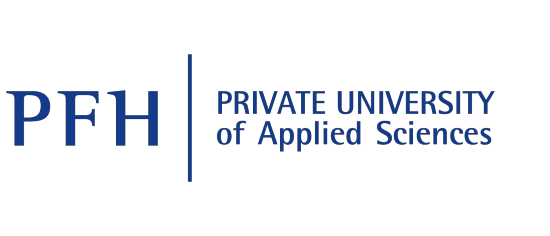

HIGHEST PAYING SALARY - Best Courses to Study in Germany
In today’s rapidly evolving landscape of job market, students want education that is affordable, practical, and opens doors to worldwide opportunities. Countries like the US and UK have been popular among students, but they come with a high tuition fees and tough visa rules. That’s why many Indian students are now choosing Germany for it provides top-class education, strong industry ties, and tuition-free education/ low-cost study options at public universities. Among the leading institutions that offer top programs according to the industry needs is PFH University Germany. It puts a focus on educational excellence and employability. The university provides best courses to study in Germany and along with these offers scholarships to deserving students.
Why Choose Germany for Higher Education?
Germany is becoming exceptionally famous for education due to many reasons. These attractions are listed below:
- Education affordable for Indian middle-class: The public universities have made quality education accessible by not charging tuition fees. While private universities like PFH University Germany charge fees and offer high-value programs.
- Globally Recognized Degrees: Degrees from German universities have a high-value, and thus students get employment options world-wide.
- High-Quality Infrastructure: Universities here have advanced laboratories, libraries, and research centers.
- Strong Industry Linkages: German universities partner with companies like BMW, Volkswagen, Bosch, Siemens, etc. PFH University Germany also provides its students, real-world exposure with the help of internships and projects at excellent companies.
- Safe and Student-Friendly campuses: Universities here have multicultural campuses and cities also have affordable living-costs.
- Work-visa after Studies: Students are allowed to stay for 18 months after graduation to find a job.
Which are the Best Programs to Study in Germany?
When students ask what are the best courses to study in Germany, the answer is simple- it depends on their career goals at the same time some disciplines look more rewarding because of industry demand. Here are the best courses to study in Germany for Indian and international students:
- Engineering – When it comes to engineering study abroad, Germany is considered to be the ideal place. Best Engineering Courses to Study in Germany include the fields like Mechanical, Electrical, Civil, Automotive, and Computer Engineering.
- Computer Science & IT – As digital revolution becomes increasingly pertinent, Artificial Intelligence, Data Science and Cybersecurity courses in Germany are the some that are recognised in the world.
- Management Studies (MBA) – The German MBA program is highly considered for anyone who has plans to get into leadership positions.
- Medicine & Life Sciences – With cutting-edge research and medical facilities, studies in medicine and pharmacology are also popular with foreign applicants.
- Business & Finance – Courses in international business as well as Economics and Finance are other preferred programs for students looking to work in corporate/financial fields.
- Architecture & Design – With Germany’s rich cultural history and modern design industry, aspiring architects consider Germany as their top study destination.
Students can identify the best courses to study in Germany for masters or bachelor’s programs according to their long-term career plans.
Top Universities Offering These Courses
Germany has top-ranked universities in Europe and world. Some of these leading universities are:
- PFH University Germany – A reputed private university, well-regarded for its English-taught master’s programs, personalized teaching, small batch sizes, industry connections, and high employability rates. It also has a strong alumni network and close collaborations with industry across Germany.
- Technical University of Munich (TUM) – This is the top university in Germany. It has programs in engineering, IT, natural sciences and almost all other fields.
- Ludwig Maximilian University of Munich (LMU) – LMU is another excellent German university. It has excellent programs in humanities, medicine, and law.
- RWTH Aachen University – This is another top-ranked institution. It has some best courses in mechanical, electrical engineering and more.
- Heidelberg University – Famous for providing top courses. The university has excellent programs in medicine, life sciences, etc. that are research-focused.
- Karlsruhe Institute of Technology (KIT) – KIT is a famous name for programs in computer science and engineering etc.
- Frankfurt School of Finance & Management – Eminent name for providing programs in business, finance, and economics etc.
Courses with High Job Opportunities in Germany
Germany has a strong economy and thus skilled professionals highly in demand. Courses that are according to industry needs provide students with many job opportunities after graduation. Some of these career-oriented and best courses to study in Germany are:
- Mechanical Engineering: These engineers are always in demand in automotive and manufacturing industries.
- Information Technology & Data Science: IT professionals are always needed in companies across this sector for digital growth.
- Healthcare & Medicine: Germany is always in need of medical professionals which creates job opportunities in this field.
- Finance & Accounting: Graduates of this field can find high-salaries in banks, multinational corporations, and consulting firms.
- Renewable Energy & Environmental Studies: Sustainability is the top priority, thus many job options are available in this sector.
Expected Salaries After Studying in Germany
Pursuing the best courses to study in Germany is a way to earn attractive salary packages. Let us have a look at what students can expect after completing their course. Graduates from Engineering disciplines can earn €50,000 – €65,000 p.a. which is approx. ₹45–58 lakhs. IT graduates are paid €55,000 – €70,000 annually, in INR its ₹49–62 lakhs. Medical graduates earn ₹58–71 lakhs every year (between €65,000 – €80,000), while Finance & Business Graduates are offered €50,000 – €65,000 which is ₹45–58 lakhs. Architecture & Design students can expect €39,000 – €54,999 (approx. ₹36–49 lakhs).
These salaries highlight that graduating from universities like PFH ensure high employability and good salaries.
Conclusion
PFH University Germany perfectly caters to the needs of Indian students by offering best courses to study in Germany as per the industry demand. From engineering management to PFH’s MBA programs, students get global opportunities for employment, practical experience, and advanced skills. PFH provides the right mentorship and thus, students can begin their academic journey which is fruitful.
Frequently Asked Questions
When it comes to living expenses in Germany for Indian students, students need an amount between €680 and €1,120 per month depending on the city and the lifestyle.
Two major intakes: Summer (April) and Winter (October). Winter is more popular among Indian students.
Yes, degrees from PFH University Germany are recognized in Europe and worldwide. Students can easily finds jobs internationally.
Public universities have low or no tuition fees, PFH University charges fee, but, offers smaller class sizes, personalized teaching, and stronger links with industries, for better employability.
Yes, PFH University Germany offers best master’s programs entirely in English.



















